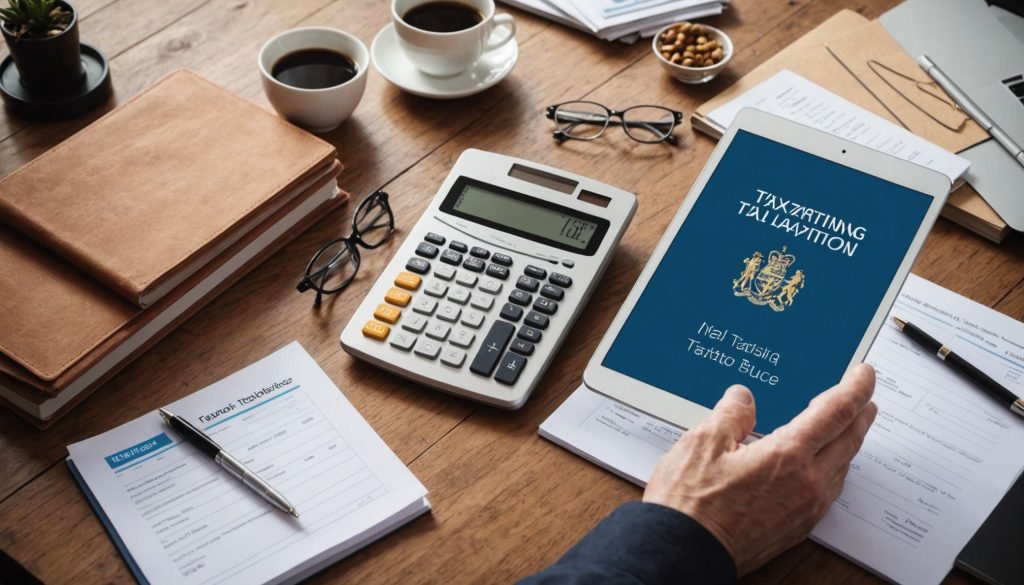Biden vs Trump Debate: Who Really Won?
Biden vs Trump Debate: Who Really Won? in an era defined by political polarization and digital echo chambers, few events captivate the American consciousness quite like a presidential debate. The Biden vs Trump debate was no exception, capturing headlines, dominating social media, and stirring passionate discourse across every corner of the nation. But beyond the rhetoric, interruptions, and carefully crafted soundbites, a critical question remains: who truly emerged victorious?
Unpacking the layers of this clash demands a rigorous evaluation of substance, style, strategy, and impact. Only by peeling back the superficial theatrics can one grasp the true essence of the evening.

Setting the Stage
Leading up to the Biden vs Trump debate, anticipation was at a fever pitch. Each candidate entered with defined personas—President Joe Biden positioned as the seasoned, steady hand promising continuity and restoration; former President Donald Trump embodying a disruptive force challenging the political establishment with bombast and vigor.
The stakes were monumental. With the electorate sharply divided and swing voters more elusive than ever, the debate was not merely an exhibition—it was a battlefield.
Tone and Temperament: First Impressions
From the outset, the tone was set with palpable tension. Trump, true to form, launched into an aggressive, rapid-fire cadence. His strategy was clear: dominate the narrative, unsettle his opponent, and project strength.
Biden, on the other hand, adopted a measured approach. Pausing deliberately, speaking directly to the camera, and invoking the American people rather than indulging in tit-for-tat exchanges, he sought to appear as the adult in the room.
In the realm of optics, body language often conveys more than words. Throughout the Biden vs Trump debate, Biden’s composed demeanor contrasted sharply with Trump’s animated interruptions and forceful gesticulations. For undecided viewers yearning for stability, this distinction likely resonated deeply.
Key Issues and Policy Clashes
Economy
The economy, often the bedrock issue of any election, dominated early exchanges. Trump touted his record pre-pandemic, emphasizing deregulation, tax cuts, and record-low unemployment rates. He warned that Biden’s policies would usher in rampant inflation, higher taxes, and economic malaise.
Biden countered with an appeal to the middle and working classes, criticizing Trump’s tax policies as disproportionately favoring the wealthy. He pledged to invest in infrastructure, green energy, and education to create a more resilient economy.
Neither candidate delivered a knockout blow here; however, Biden’s focus on future investment provided a forward-looking narrative, while Trump’s emphasis on past successes served to remind voters of his pre-pandemic achievements.
Healthcare
Healthcare illuminated stark ideological divides. Trump reiterated his desire to dismantle the Affordable Care Act, promising a superior, yet unspecified, alternative. Biden championed expanding Obamacare with a public option, framing healthcare as a fundamental human right.
In this segment of the Biden vs Trump debate, Biden’s message carried more specificity, providing a clearer vision for an issue that touches every American household.
Foreign Policy
Foreign policy was a battleground where Trump sought to flex his record—brokered Middle East agreements, pressure on NATO allies, and tough stances on China.
Biden, however, criticized Trump’s alienation of traditional allies and his perceived coziness with authoritarian figures. Biden painted himself as a restorer of America’s global credibility.
While Trump’s base likely applauded his unorthodox methods, Biden’s critique may have swayed moderate voters concerned about America’s diminished stature abroad.
COVID-19 Response
Arguably the most emotionally charged portion of the Biden vs Trump debate centered around the pandemic. Trump defended his administration’s response, emphasizing vaccine development speed and efforts to balance public health with economic stability.
Biden lambasted Trump’s handling, pointing to high death tolls and inconsistent messaging. He emphasized trust in science and public health officials.
Here, Biden arguably seized the moral high ground, articulating a vision of empathetic, science-driven leadership.
Debate Strategy and Execution
Each candidate’s strategic calculus was evident.
Trump adopted a blitzkrieg approach—rapid, relentless, and often combative. His aim appeared to be to fluster Biden, forcing him into gaffes or lapses of memory. Yet, Biden largely maintained composure, deflecting attacks with phrases like “Will you just shut up, man?”—a quip that, while informal, humanized him to many viewers.
Biden’s strategy was to make the debate about the American people, not about Trump’s provocations. He repeatedly looked into the camera, addressing voters directly and reinforcing a message of unity and restoration.
In terms of strategic execution, Biden succeeded in appearing presidential and empathetic. Trump succeeded in energizing his base but may have struggled to broaden his appeal among independents.
Media and Public Reaction
Post-debate polls and media analysis provide important, albeit imperfect, barometers of success. Immediate snap polls suggested that Biden held a narrow but consistent advantage in public perception of who “won” the Biden vs Trump debate.
Mainstream media outlets largely declared Biden the victor based on composure, clarity, and policy articulation. Conservative outlets praised Trump’s aggressive stance and directness, framing it as a show of strength against a perceived weak opponent.
Social media, a more chaotic and decentralized arena, reflected entrenched partisan divides. Memes, soundbites, and viral clips proliferated within minutes, with each side claiming moral and rhetorical victories.
Impact on Voter Sentiment
Did the Biden vs Trump debate significantly move the electoral needle?
Historical data suggests that while debates rarely cause dramatic shifts, they can consolidate or erode margins at the edges—particularly among undecided voters.
Early indications showed a slight uptick in favorability for Biden among key demographics, including suburban voters and seniors. Trump’s favorability remained strong within his base but showed minimal expansion beyond it.
In the polarized climate of American politics, debates often serve to reinforce existing biases rather than change minds. Yet even small shifts in swing states can have outsized impacts on the electoral map.
Who Really Won?
Defining “victory” in the Biden vs Trump debate depends heavily on perspective.
- For Trump’s Base: Trump won by appearing dominant, combative, and unfiltered—hallmarks his supporters revere.
- For Biden’s Base: Biden won by embodying steadiness, empathy, and a coherent vision for America’s future.
- For Undecided Voters: Biden’s calmer demeanor and clearer policy propositions likely tipped the scales slightly in his favor.
In the broader context of electoral strategy, maintaining composure under fire and appealing to moderates and undecideds often matters more than rousing the base. By that metric, Biden emerged slightly ahead.
The Larger Implications
Beyond the immediate headlines, the Biden vs Trump debate underscored deeper societal fissures: trust versus distrust, science versus skepticism, unity versus division.
It served as a microcosm of the national mood—a nation yearning for stability yet still enthralled by spectacle. For political historians, it will remain a case study in contrasting leadership styles during a time of extraordinary upheaval.
Ultimately, while the debate offered no definitive “knockout,” it sharpened the choices before voters: a referendum on two vastly different visions for America’s future.
The Biden vs Trump debate was a high-stakes confrontation that reflected the tensions, aspirations, and anxieties of a nation at a crossroads. Both candidates showcased their defining attributes, and both mobilized their respective bases.
Yet in the crucial arena of appealing to the undecided middle—the voters who decide elections—Biden’s restraint, focus, and empathetic messaging likely edged him closer to victory. In an era where stability is a prized commodity, the candidate who projects it most convincingly often reaps the rewards.
As history marches forward, the true verdict of the Biden vs Trump debate will not be written by pundits or polls, but by the American people themselves at the ballot box.





